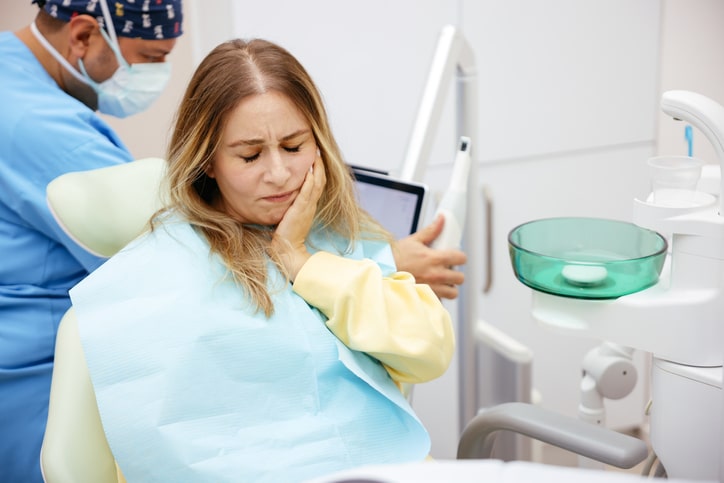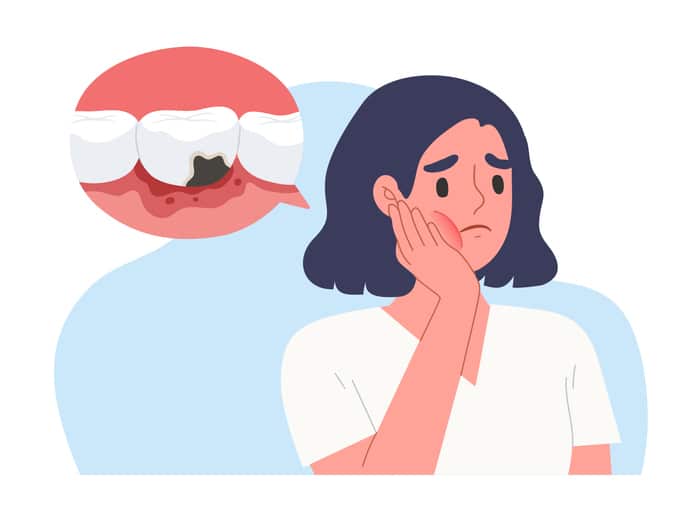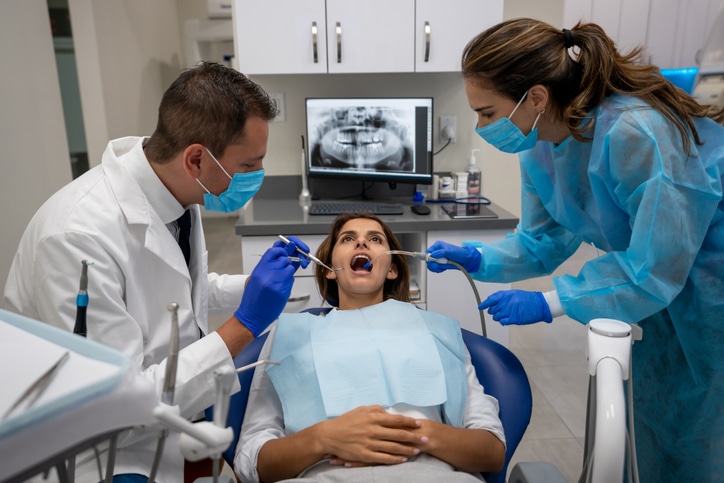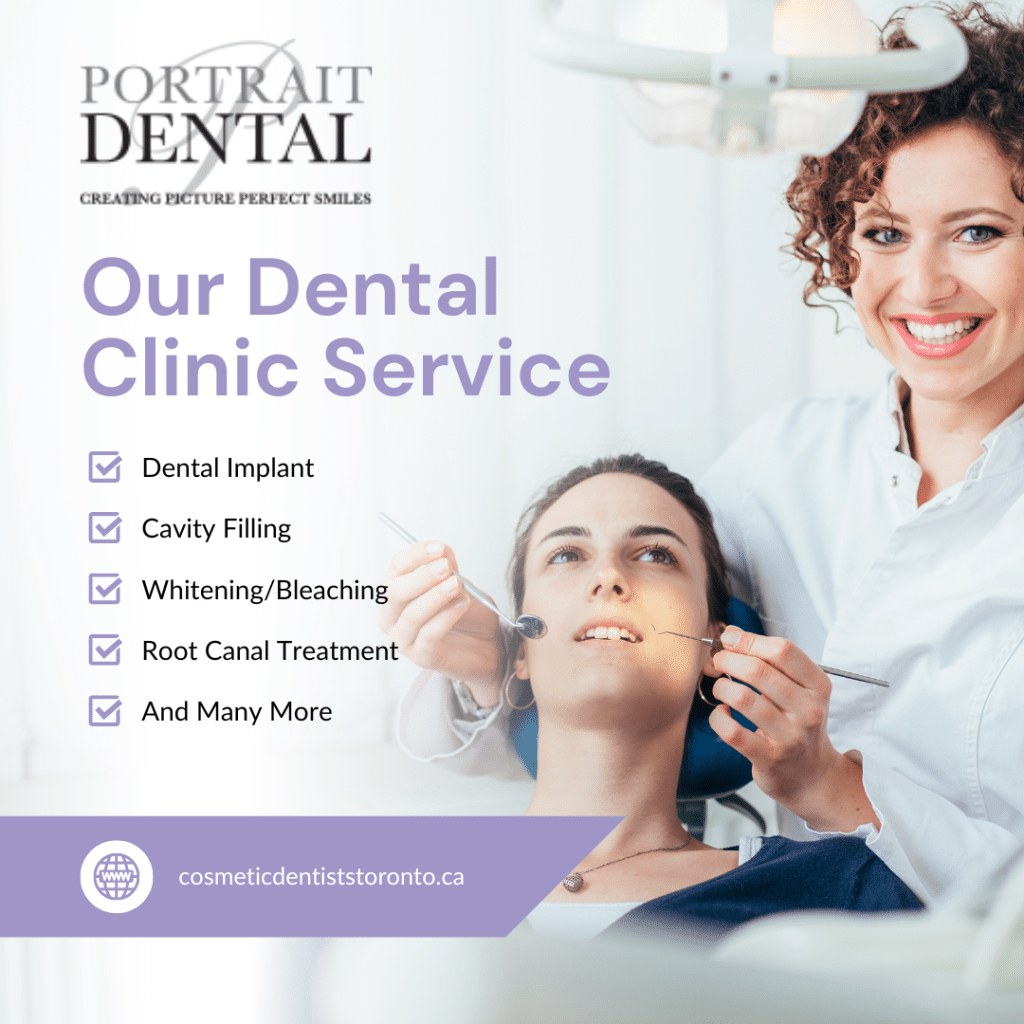Dental emergencies can strike at any moment, often causing pain, discomfort, and anxiety. Understanding what constitutes a dental emergency and knowing how to respond can make a crucial difference in preserving your oral health. If you’re currently experiencing severe pain or discomfort, don’t hesitate to contact us immediately.
Otherwise, stick around as we discuss what qualifies as a dental emergency, highlight the various scenarios that might require immediate attention, and shed light on the available options for emergency dental care. Portrait Dental is here to ensure you receive the care you need when faced with dental emergencies.
Identifying a Dental Emergency
A dental emergency refers to any situation in which your oral health requires immediate attention to alleviate pain, prevent complications, or address injuries. Here are some common scenarios that qualify as dental emergencies:
Severe Toothache: If you’re experiencing excruciating pain in your tooth or gums, it’s essential to seek immediate dental care. Toothaches can be indicative of various underlying issues, such as infections, abscesses, or dental trauma.
Knocked-Out Tooth: Accidents can lead to a tooth being completely knocked out of its socket. In this case, you should act swiftly. Retrieve the tooth, hold it by the crown (avoid touching the root), and try to gently reposition it in the socket. If that’s not possible, store it in milk or a tooth preservation solution and head to your dentist immediately.
Cracked or Loose Tooth: A fractured or broken tooth, especially when accompanied by pain, warrants prompt attention. Cracks or fractures can vary in severity, but they often leave the inner tooth exposed, making it vulnerable to infection. If a tooth is loose , then immediate treatment may help stabilize the tooth and prevent further damage.
Oral Infections: Swelling or lumps in your gums, severe bad breath, or a persistent bad taste in your mouth could indicate an oral infection. Infections, if left untreated, can spread and become life-threatening.
Lost Dental Filling or Crown: The loss of a filling or crown can expose your tooth to damage, sensitivity, and discomfort. Seek prompt replacement to protect your tooth from further harm.
Bleeding Gums: Prolonged bleeding from your gums or other oral tissues may signify an issue that requires immediate attention, especially if it doesn’t stop with basic first-aid measures.
Excessive Swelling from Wisdom Teeth: Wisdom teeth can frequently lead to pain and swelling when they become impacted or infected. In such cases, immediate care may be necessary to relieve discomfort and prevent complications.
Options for Emergency Dental Care
When facing a dental emergency, knowing your options and taking immediate action is vital to ensure the best possible outcome. Here’s what you can do when you’re dealing with a dental emergency:
Contact Your Dentist: Your first step should be to reach out to your regular dentist. They will provide guidance on the best course of action and arrange an appointment as soon as possible. If your emergency occurs during regular office hours, your dentist will likely accommodate you promptly.
Head to the Hospital: In cases of severe injuries or if you cannot reach a dentist immediately, consider going to the nearest hospital emergency room. While hospital staff can offer initial care, it’s crucial to follow up with a dentist for specialized treatment.
Home Care: If you cannot access immediate dental care, there are some home care measures you can take to alleviate discomfort and manage the situation until you can see a professional. These may include over-the-counter pain relief, rinsing with warm salt water, or applying a cold compress to reduce swelling.
Many dental practices, like Portrait Dental, offer emergency dental care services. We are well-equipped to handle urgent situations, and you can often receive same-day appointments. Call Portrait Dental for more information at 416 534 6000.
Preventing Dental Emergencies
While it’s impossible to predict every dental emergency, several preventive measures can significantly reduce the risk:
Maintain Good Oral Hygiene: Brushing, flossing, and regular dental check-ups are essential to catch and address potential issues before they escalate.
Use Mouthguards: If you play sports or have a habit of grinding your teeth at night, consider using a mouthguard to protect your teeth from impact and damage.
Be Mindful of What You Eat: Avoid biting hard substances like ice, kernels and unpopped popcorn. These can cause tooth fractures.
Attend Regular Dental Check-Ups: Routine dental visits allow your dentist to identify and address issues early, preventing them from becoming dental emergencies.
Experiencing a Dental Emergency? Get in Touch Today!
Understanding what constitutes a dental emergency and how to respond is critical to preserving your oral health. At Portrait Dental, we are committed to providing swift and effective care for our patients in their time of need. By identifying dental emergencies, knowing your options for emergency dental care, and taking preventive measures, you can minimize the impact of dental emergencies on your oral health and overall well-being.
Your oral health is our priority, and we are here to support you through every dental situation you may encounter. Don’t hesitate to reach out to us whenever you need assistance with dental emergencies or any other oral health concerns.




